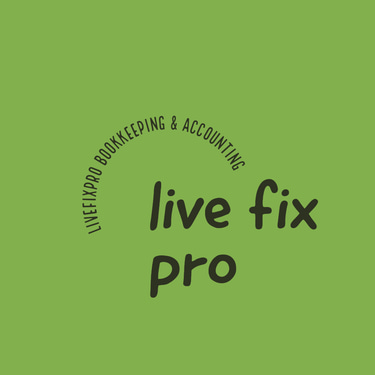"Bookkeeping Basics: A Guide for Beginners and Professionals"
In this post, we explore the fundamentals of bookkeeping, offering practical insights for beginners and professionals alike. From understanding essential bookkeeping terms to learning about the process, tools, and common mistakes to avoid, this guide provides a comprehensive overview of how to maintain accurate financial records. Whether you're just starting your business or looking to refine your bookkeeping skills, this article is designed to help you stay organized, compliant, and financially informed.


"Bookkeeping Basics: A Guide for Beginners and Professionals"
Introduction:
Introduce the concept of bookkeeping and its importance for businesses and individuals. You can briefly mention how good bookkeeping practices can lead to financial clarity, legal compliance, and better decision-making.
Key Points to Cover:
What is Bookkeeping?
Definition and purpose.
The difference between bookkeeping and accounting.
Importance of accurate bookkeeping.
Key Bookkeeping Terms:
Assets, liabilities, equity.
Revenue, expenses.
Accounts payable and receivable.
General ledger and trial balance.
The Bookkeeping Process:
Recording daily transactions (sales, purchases, payments, etc.).
Categorizing expenses and income.
Reconciling bank statements.
Preparing financial statements (balance sheet, income statement, etc.).
Manual vs. Digital Bookkeeping:
Benefits of using bookkeeping software (QuickBooks, Xero, etc.).
Traditional methods of bookkeeping (ledger books, spreadsheets).
How technology simplifies bookkeeping for small businesses.
Why Good Bookkeeping is Crucial:
Staying compliant with tax regulations.
Providing financial insights for growth.
Reducing errors and discrepancies.
Common Bookkeeping Mistakes to Avoid:
Failing to reconcile accounts regularly.
Mixing personal and business expenses.
Not keeping receipts and documentation.
Neglecting to back up financial data.
How to Get Started with Bookkeeping:
Choosing the right bookkeeping system.
Basic steps for setting up bookkeeping for a small business or personal finances.
Tips on staying organized and consistent.
Conclusion:
Summarize the importance of keeping up with bookkeeping, regardless of business size. Encourage the reader to consider hiring a professional if they find the task too complex.
